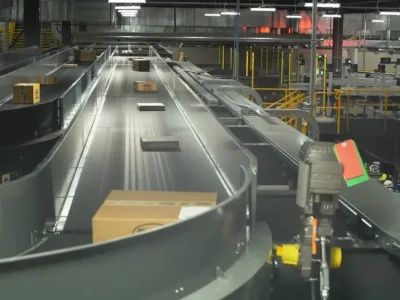
Brexit, Techxit?
The rise and rise of processor intellectual property licensor ARM, first under Robin Saxby, now Sir Robin Saxby, and then under Warren East, has been an essential part of the backdrop to my journalistic career. And I was looking forward to more of the same independent UK success under Simon Segars.
But money talks. And Masayoshi Son’s exuberant enthusiasm for the Internet of Things and the fact that his company SoftBank has amassed a war chest of many billions of dollars has allowed him to swoop to buy ARM (see ARM agrees to be bought by Japan’s Softbank). And ARM’s board has a legal and fiduciary responsibility to act in the best interest of the shareholders and no responsibility to act in the national or continental interest.
Of course, arguments can be made about how these interests coincide and diverge in the near- and long-term.
So it would have been interesting to have been a fly on the wall in the board meeting that discussed the SoftBank proposal and to have noted who voted which way. Was it unanimous? One might assume chairman Stuart Chambers would have voted in favor, if his vote was required (see ARM’s chairman was appointed to UK takeover committee). Chambers was also photographed with Son in Downing Street as Son met the newly-appointed Chancellor of the Exchequer Philip Hammond, who promptly declared that the sale of ARM to Softbank to be a good thing, probably, and showed that UK was open for business in the post-Brexit era.
It is notable that Hermann Hauser, the entrepreneur who founded Acorn Computers in Cambridge, which was the original parent of ARM, said he was “very sad” at news of the £24 billion (about $32 billion) takeover. I too am sad and fearful that, despite the premium offered by SoftBank, ARM has undervalued its independence.
Within a few short months we have seen a dramatic fall in fortunes at rival IP licensor Imagination, the UK vote to leave the European Union and ARM’s board vote to sell its independence and become a subsidiary of a Japanese telecommunications company.
There’s no doubt that ARM is in an excellent position to help set the agenda in the Internet of Things revolution but that position has been built on its independence as well as on its engineering. Japanese ownership would now strengthen the hand of rival architectures and indeed of open-source hardware (see ARM-SoftBank: Selling at the top or buying at the bottom?). And maybe the rise of open source hardware was something that helped inform the board’s collective opinion that now was the time to do a deal?
There is the possibility that some other company may decide that ARM and its position in microcontrollers is worth more than SoftBank has said it is prepared to pay. And wouldn’t it be ironic if the European Commission raised objections to a deal because of the strategic importance of ARM’s technology, whille the UK government raised none? Would Europe have the nerve to do that even as the UK is trying to leave the European Union. I am sure they would. Or is it simply the case that ARM has grown to be global player and as such its comings and goings transcend the interests of petty nation states or even regional blocs?
Which leaves those of us following technology-based industry turning over rocks looking for companies to follow and maybe grow to be the next ARM. Maybe it will be a company based on the lowrisc dev initiative out of Cambridge.
Related links and articles:
News articles:
ARM agrees to be bought by Japan’s Softbank
ARM-SoftBank: Selling at the top or buying at the bottom?
ARM’s chairman was appointed to UK takeover committee
 If you enjoyed this article, you will like the following ones: don't miss them by subscribing to :
eeNews on Google News
If you enjoyed this article, you will like the following ones: don't miss them by subscribing to :
eeNews on Google News



